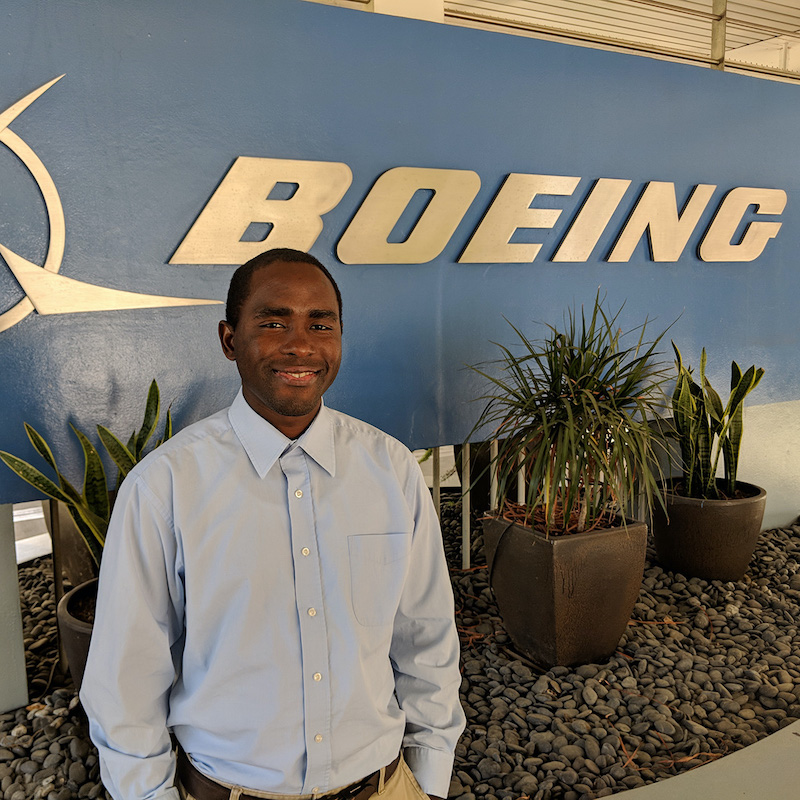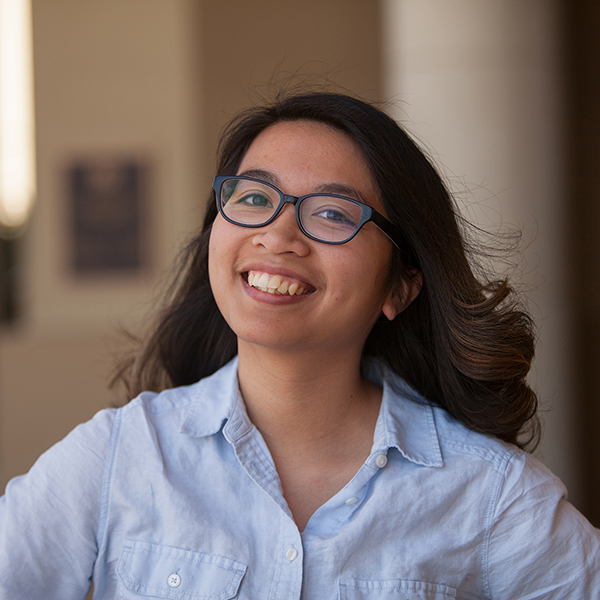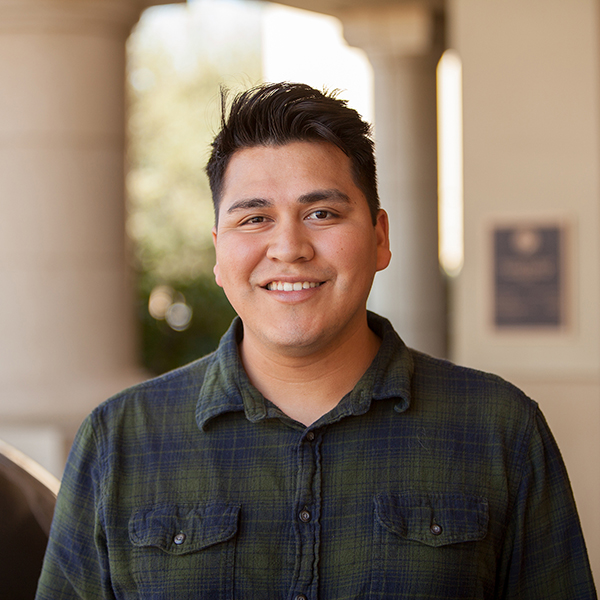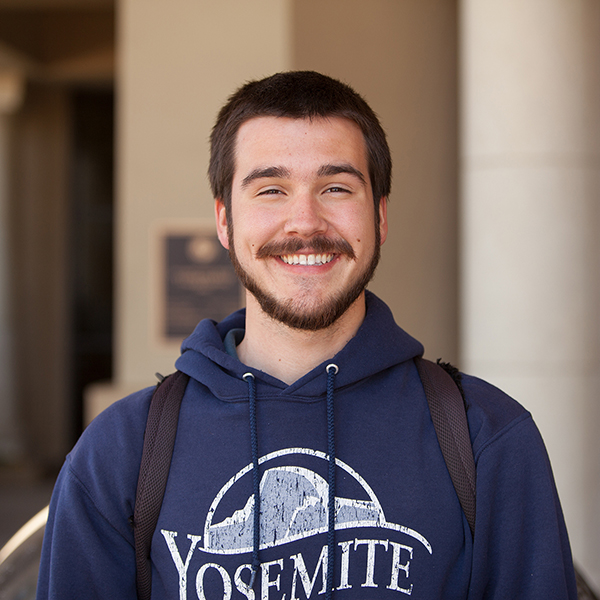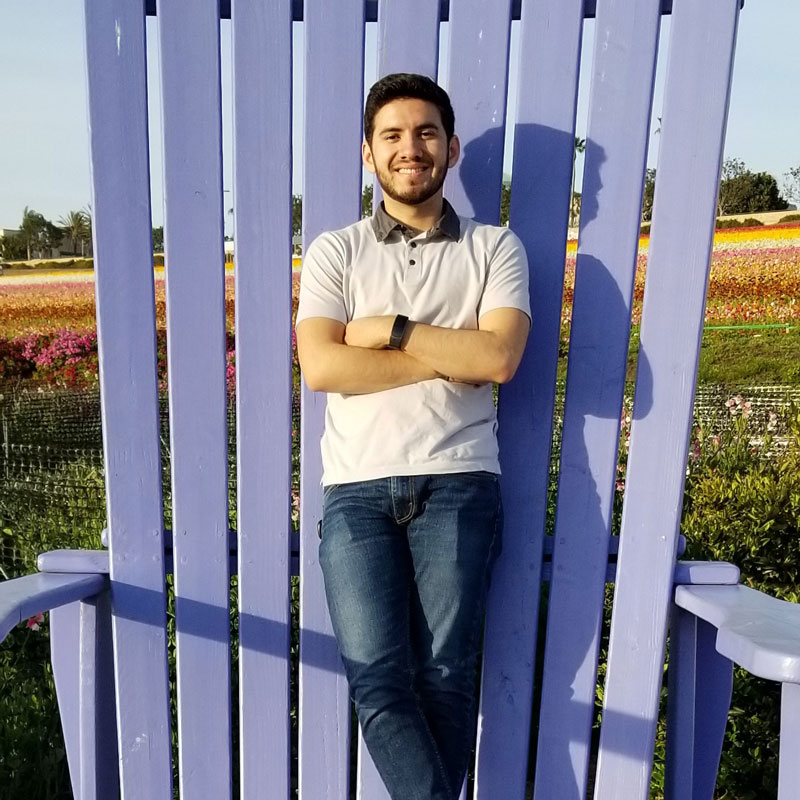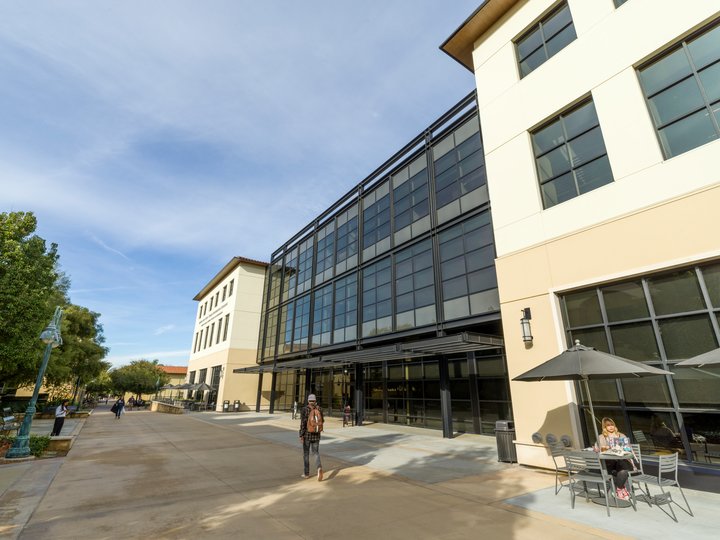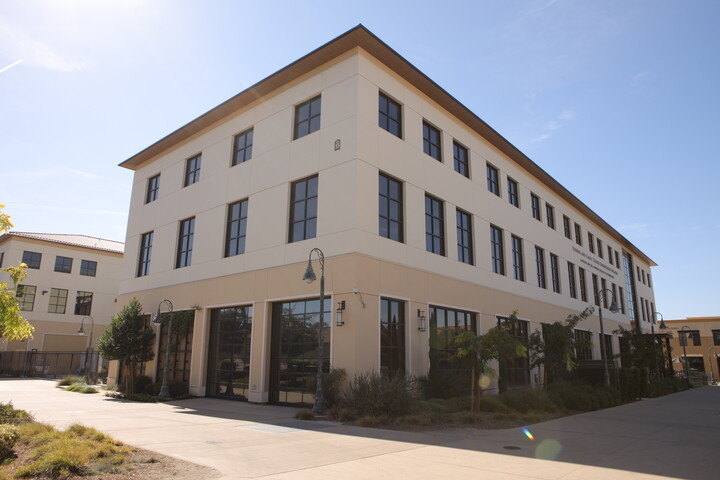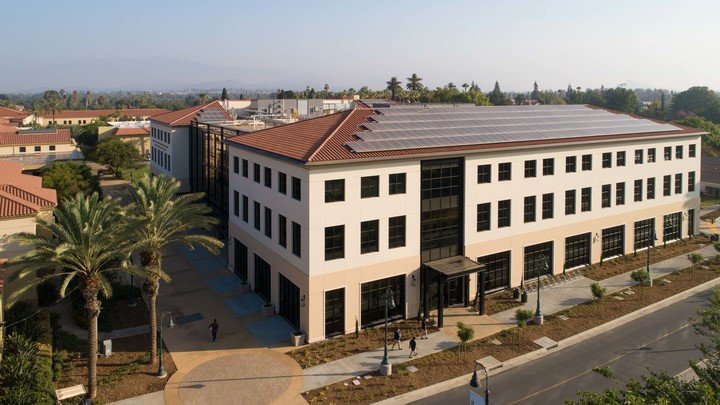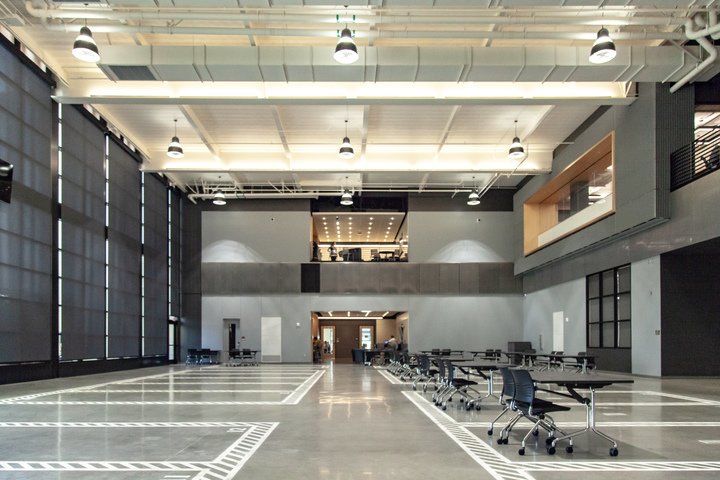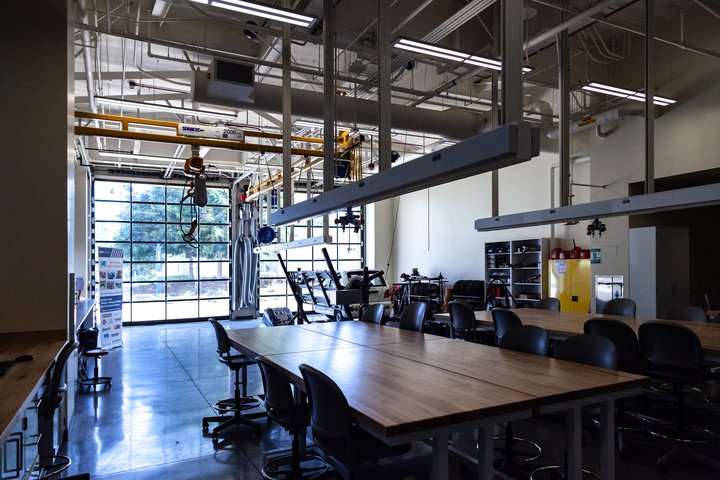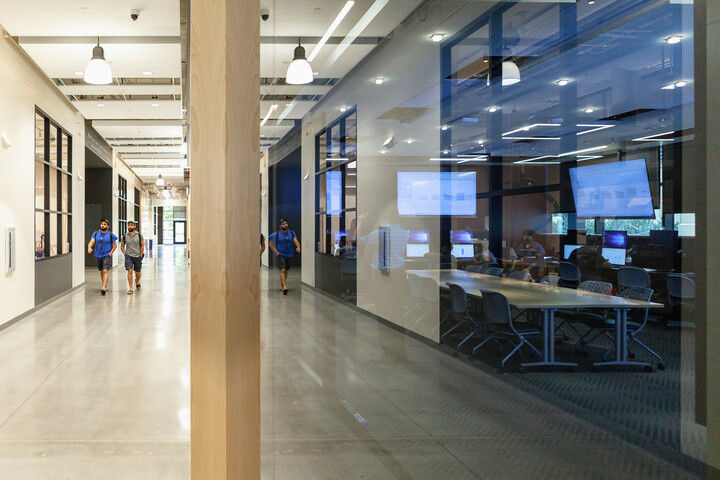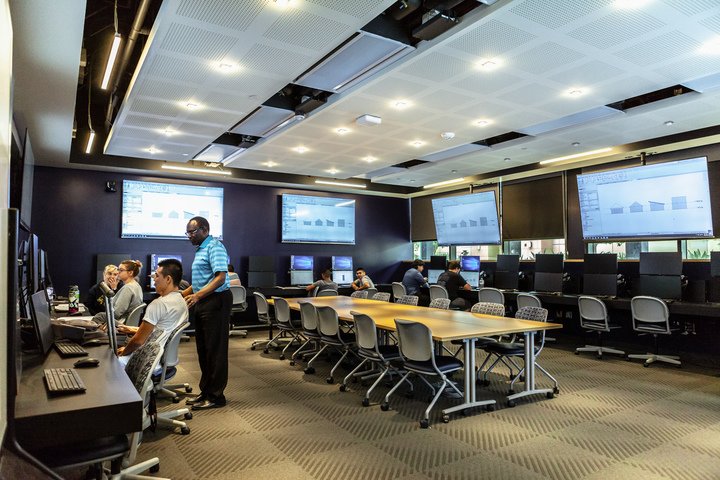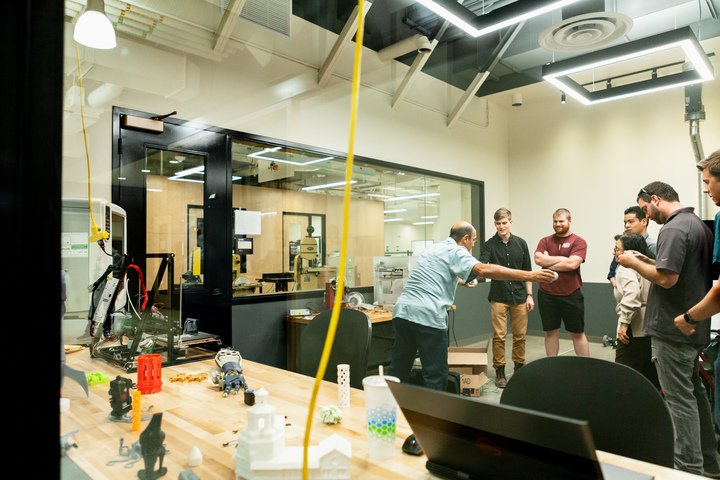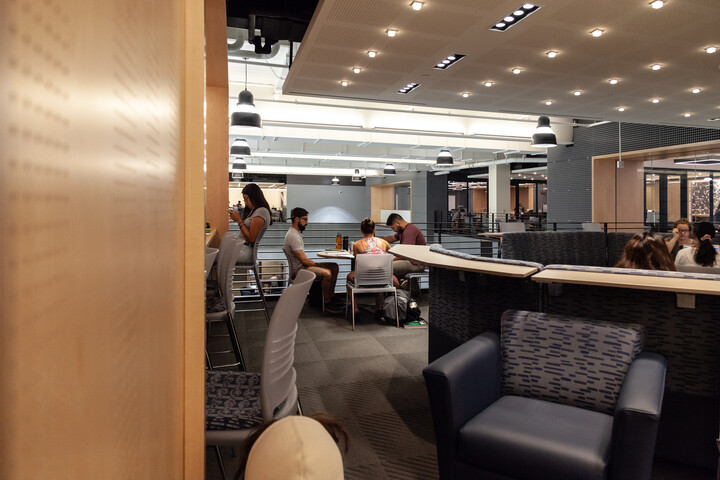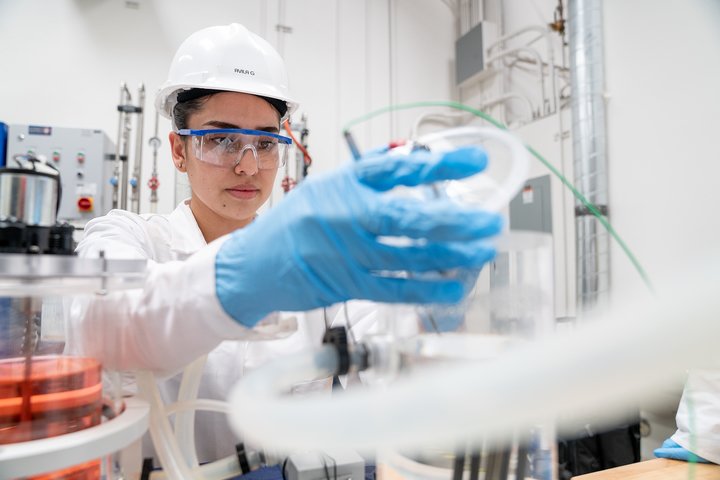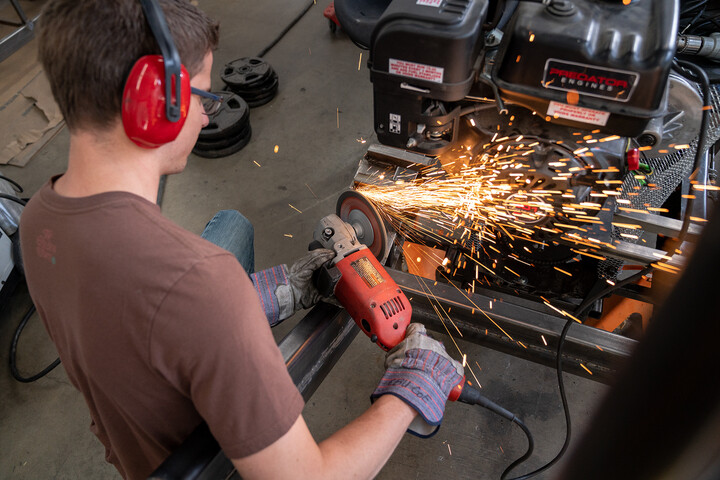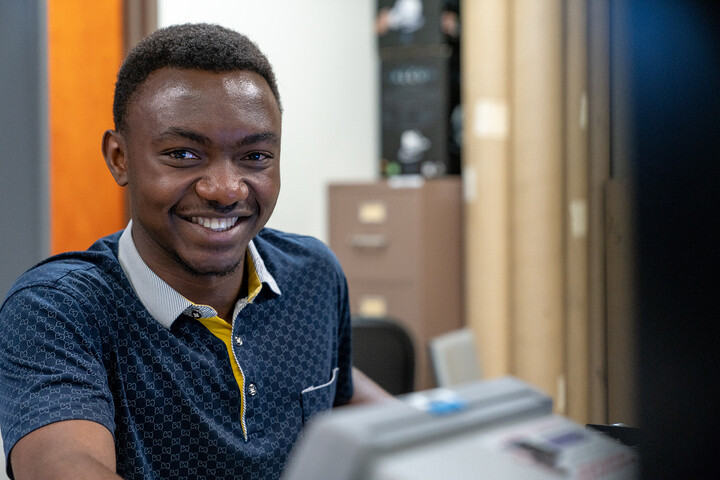Electrical and Computer Engineering, BSECE
From supercomputers and robotics to voice recognition and renewable energy, electrical and computer engineers are improving the quality of life everywhere in the world.
Program Intro
CBU’s electrical and computer engineering program trains students to become a problem solver and innovator with the technologies of the 21st century. As this is a profession in great demand, our graduates have found employment at leading engineering companies such as Intel, Apple and Southern California Edison.
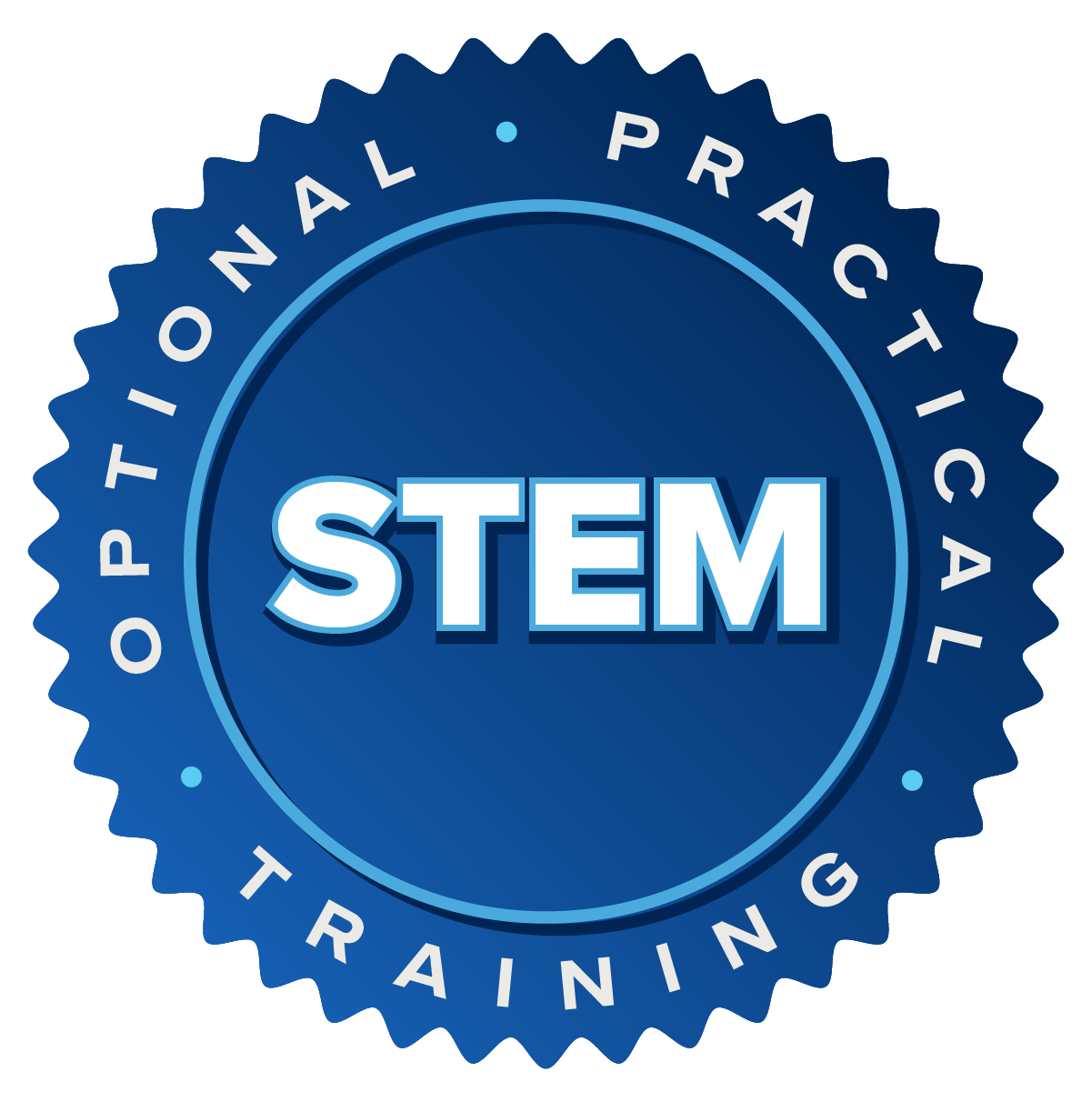
Why Study Electrical and Computer Engineering at CBU?
Work in the industry and gain real-world experience
One of the most important parts of students’ college training will be learning in a real engineering job. Students have a special course to prepare them for this first engineering job. Their official internship will be the summer of their junior year, although other opportunities may occur for them to work in the industry.
Learn how to manage projects
Industrial representatives continue to emphasize that they wish new engineers had more project management experience. Engineering students in their junior year work with and co-mentor business students. Our goal is that eventually all students in our program will develop one of their own creative ideas and go through the process to receive a provisional patent.
Have a cross-cultural experience
All engineering students are required to have a cross-cultural experience. This can be achieved several ways including participating in an International or Engineering Service Project (ISP or ESP), choosing a senior capstone project with cross-cultural emphasis, taking an approved intercultural studies course, or going on an approved study abroad.
Complete in 3 years
CBU offers an engineering accelerated program that will allow you to earn your Bachelor of Science in Electrical and Computer Engineering in as little as 3 years.
What You'll Learn
CBU electrical and computer engineering graduates are expected to acquire:
- An ability to identify, formulate, and solve complex engineering problems by applying principles of engineering, science, and mathematics.
- An ability to apply engineering design to produce solutions that meet specified needs with consideration of public health, safety, and welfare, as well as global, cultural, social, environmental, and economic factors.
- An ability to communicate effectively with a range of audiences.
- An ability to recognize ethical and professional responsibilities in engineering situations and make informed judgments, which must consider the impact of engineering solutions in global, economic, environmental, and societal contexts.
- An ability to function effectively on a team whose members together provide leadership, create a collaborative and inclusive environment, establish goals, plan tasks, and meet objectives.
- An ability to develop and conduct appropriate experimentation, analyze and interpret data, and use engineering judgment to draw conclusions.
- An ability to acquire and apply new knowledge as needed, using appropriate learning strategies.
- An ability to articulate a Christian worldview on personal, professional, technical, and societal issues.
- An ability to develop attributes of leadership in an innovation-driven environment.
Program Details
EGR 302: Engineering Design and Documentation
Team design of industrial or self-designed projects.
EGR 321: Computer Organization
Study of organization and structuring of the major hardware and software components of computers.
EGR 333: Electronics I
Study of electronic devices and basic circuit configurations.
The Gordon and Jill Bourns College of Engineering at California Baptist University is proud to offer an accelerated program that will allow you to earn your Bachelor of Science degree in as little as 3 years!
Who should look into the 3-year electrical and computer engineering program?
- High school seniors accepted to CBU engineering who have taken AP Calculus AB exam with a score of 4 or above (or AP Calculus BC with a score of 3 or above) and two other AP subjects valid for degree requirements in the College of Engineering at CBU.
- STEM-minded, highly-motived, and hard-working high school sophomore and junior students who are planning to pursue an engineering degree.
What are the advantages of the 3-year electrical and computer engineering program?
- Saving tens of thousands of dollars on tuition and other expenses.
- Giving yourself a jump-start on your professional career.
- Allowing you to advance earlier into a post-graduate degree.
- Increasing your lifetime income by starting to work one year earlier.
How does it work?
- Inform your CBU admission counselor that you would like to pursue a 3-year BS degree in electrical and computer engineering.
- Send your AP or CLEP scores to CBU.
- Develop an academic plan to be reviewed and approved by your department chair before your first week of class at CBU.
- Work with your faculty academic advisor who will monitor your progress and help you resolve schedule conflicts throughout the next three years.
- Expect to take a full load of 17-18 units of courses each semester.
- You will possibly need to take courses during the summer after your first and/or third year(s).
- A required 200-hour internship will mostly likely take place during the summer after your 2nd year. Therefore students on the 3-year plan might not be able to use that summer to take courses.
CBU's bachelor degree program in electrical and computer engineering, BSECE has been accredited by the Engineering Accreditation Commission of ABET, https://www.abet.org, under the General Criteria and the Electrical, Computer, Communications, Telecommunication(s) and Similarly Named Engineering Programs Program Criteria.
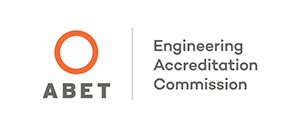

John Butler, Ph.D.
Associate Professor of Electrical and Computer Engineering
Chair, Electrical & Computer Engineering
Office Phone: 951-552-8363
E-mail: jbutler@calbaptist.edu
Office Location: College of Engineering Building, TEGR 325
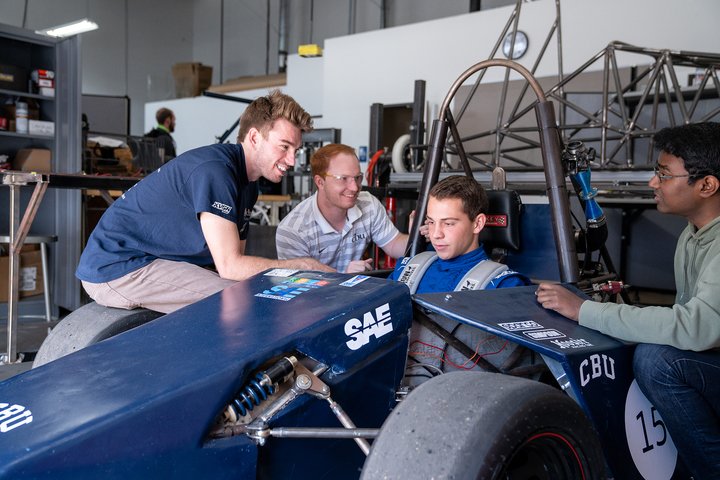
Student Opportunities: SAE Club
Students in CBU's SAE Car Club compete annually in competitions, gaining experience with SAE car design, a prerequisite for employment with SpaceX, and other engineering companies. In June 2021, at the Las Vegas competition, the Lancers placed fourth overall, ahead of all other California schools.
Learn in a State-of-the-Art Engineering Building
The Dennis and Carol Troesh Engineering Building at California Baptist University features numerous collaborative workspaces for students in addition to state-of-the-art classrooms and labs.
Career Possibilities
Electrical and computer engineering majors can apply their field of study to a variety of careers in the engineering industry. Some careers listed below may require further education.
- Aerospace Engineer
- Automotive Engineer
- Computer Engineer
- Radio-Frequency Engineer
- Microelectronics IC Designer
- Digital Signal Processing Specialist
- Power Electronics Specialist
- Robotics Engineer
- Utilities and Power Systems Engineer
Related Programs
Next Steps
Join our community. At CBU, you’ll be challenged to become an individual whose skills, integrity, and sense of purpose glorify God and distinguish you in the world.

